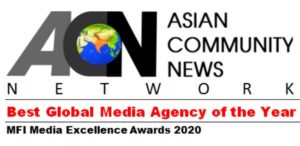Want FDI? Be More Competitive, Tame Bureaucracy, Improve Ease of Doing Business, Improve CEPA: Korea tells India
Currently, India faces stiff competition from ASEAN members like Vietnam and Indonesia as they offer better working environment, more incentives, and ease of doing business to foreign investors.
NEW DELHI: Expecting big-time foreign investment from Korean companies, India has received a word of advice and caution as well from Korea: Tame bureaucracy, make business environment friendlier, improve CEPA, ensure clean air, improve infrastructure, and make foreigners feel safe.
And the word of caution: Currently, India faces stiff competition from ASEAN members like Vietnam and Indonesia when it comes to attracting FDI as these countries offer a better working environment and ease of doing business comparatively.
SHIN Bong-kil, Ambassador of South Korea in India said Korea was willing to make India its most important economic partner. “For that, we need to make a strategic decision with regard to the CEPA agreement. Though bureaucracies are not always easy to deal with and I will try my best,” said the Ambassador while replying to a query during a webinar “Emerging Role of South Korea in Inclusive Growth of India – Saving Lives and Livelihood” organized by Asian Community News (ACN) Network, recently.
The ambassador said that though there was huge potential (of economic cooperation) some kind of trade gap between India and Korea existed in the favour of Korea.
“It’s a changing world and the main trade partner with Korea was China with 250 billion trade volume. Now because of supply chain diversion, we can change it though India is far away from Korea when we compare the distance with China. We can make big improvements like improvement of CEPA agreement under FTA,” said Ambassador SHIN Bong-kil.
India has set the goal to emerge as the next major global manufacturing hub, and Korea, as the world’s foremost manufacturing heavyweight, is more than eager to support India’s manufacturing ambitions, the Ambassador added.
 When asked If Korean companies were considering India as their next investment destination in the backdrop of companies based in China looking for an alternate destination for creating a global supply chain, the Ambassador said, “Supply chain issue is a very delicate one and everyone knows China has already become a very big economic power, all the industries there are very competitive there, and many of the companies would like to move to other countries, and same goes for Korea as well. But very frankly, India should be more competitive in using foreign companies here. India is competing with ASEAN countries like Vietnam, Indonesia, and others.”
When asked If Korean companies were considering India as their next investment destination in the backdrop of companies based in China looking for an alternate destination for creating a global supply chain, the Ambassador said, “Supply chain issue is a very delicate one and everyone knows China has already become a very big economic power, all the industries there are very competitive there, and many of the companies would like to move to other countries, and same goes for Korea as well. But very frankly, India should be more competitive in using foreign companies here. India is competing with ASEAN countries like Vietnam, Indonesia, and others.”
Korea has over 7000 of its companies operating in Vietnam whereas in India their number is little over 750.
“We have a big presence in Vietnam and why. Because economic activity there is much more convenient and easy there and there is a big Korean community there, and the Vietnam government gives all the incentives to Korean companies. Therefore it is much easier to invest in there, we have a big presence there, and also in Indonesia. You should compete with them. I am encouraged that India’s ease of doing business is improving these years and also big try by the good leadership under PM Modi, and I acknowledge it but still, it is not enough,” said the Ambassador in his candid reply.
Ambassador Shin Bong-kil acknowledged the mammoth market size of India and other positive factors but said, “Of course, you have an advantage of big market and it is near Africa and some other countries. KIA in a very short period of time made a very remarkable success in India. And KIA and Hyundai not only provide demand in India but they also export a lot of their volume to African and middle-east countries. That means that India is a hub of manufacturing. You should drive Make in India effectively by giving more benefits. Should make the business environment of India more friendly to foreigners such as clean air and environment, make the foreigner residing in feel safer, improve infrastructure.”
While replying to another question from the audience, Hee-chul Jung, Secretary-General, Korea Chamber of Commerce and Industry (KOCHAM) that represents 750 Korean companies operating in India, said, many Korean comapneis were eyeing the logistics sector, precision machinery, cold chain frozen deliveries, and a large amount of space to store goods in India.
Hee-chul Jung is also the Chief Representative (Director), Korea International Trade Association (KITA) in India.



